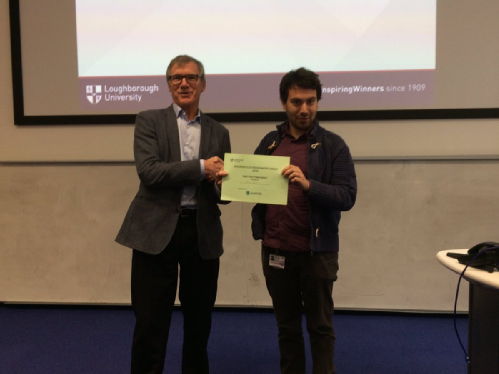Enrico Daviddi case study

"My work is in the context of helping the world reach higher sustainability"
The electrochemist using micro and nanoscale techniques to explore and inhibit corrosive engine combustion waste products.
I am working on the study of the corrosion process on metal with micro and nanoscale electrochemical techniques. My aim is to reproduce, and study in the lab, the action of some of the engine combustion waste products, that end up as acidic corroding agents dispersed in aqueous nanodroplets in the engine oil. What I am trying to do is to reproduce these systems (an acidic aqueous nanodroplet immersed in mineral oil and in contact with the metal) in order to understand how the corrosion processes depend on the many surface features (crystallographic orientation, presence of scratches and inclusions). I am also carrying out measures to understand how corrosion inhibitors that are put in the oil phase influence the corrosion process, with the aim, in the future, of being able to improve the corrosion inhibitor technology in engine oils.
The biggest motivation, in general for working in the electrochemistry field, is to feel that my work is in the context of helping the world reach higher sustainability. Corrosion studies are a great contribution to this issue, helping to prevent the consumption of materials and natural resources.
I applied for a PhD position in my current research group, and a Lubrizol sponsorship was proposed to me as one of the possible ongoing projects. I found it very interesting and challenging so I decided to embrace it.
I am towards the end of my PhD, so my main work is in the office analysing data from past experiments and shaping them into journal articles, and thesis chapters. Otherwise, my day in the Lab would generally consist in reading and writing in the morning, having meetings with lab mates and my supervisor between the morning and the afternoon, and setting and running experiments in the afternoon/evening.
Since I started my PhD I have had the opportunity of going to several international conferences, such as the International society of electrochemistry meeting in 2018 and the EuroCorr conference in 2019, in most cases presenting and discussing my work with several people in the field. I had the possibility of being part of a collaboration project between our research group and others, being involved inside a project that widened my knowledge of electrochemistry. I have been trained to use many different microscopy techniques, such as SEM, EDS, AFM, XPS, and EBSD. I also had the opportunity of seeing how an industrial research centre works, thanks to the frequent visits to Lubrizol.
Generally, an industry-funded PhD gives you a broader idea of how research in the chemical science world is conducted (it’s nice to an overview on problems that are not strictly academic). So, my suggestion to potential PhD students of this type is that if they find the proposed project interesting they should definitely go for it, there will be plenty of opportunity for research growth.
